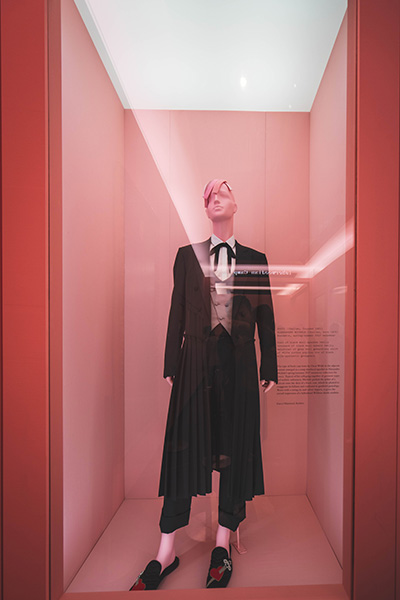The Sun King, gender benders and feathers


Sontag, fiercely intelligent with a strong personality, could be rightly viewed as embodying that fatal female attractiveness veiled with masculinity. In one part of the exhibition where the critic's original scripts are on display, visitors are reminded by the constant sound of tapping of a woman who sat in front of the typewriter, cigarette in mouth, trying to enunciate on a sensibility that she was both "drawn to" and "offended by".
From this point on, the exhibition plunges into the subculture of cross-dressers, transvestites and gay. "In the 19th century, what has been distributed throughout all of high culture now becomes a special taste. It takes on overtones of the acute, the esoteric, the perverse," wrote Sontag.
Inextricably linked to these emerging concepts is the image of the camp dandy, the 19th century equivalent of the effeminate aristocrat, and a stereotype exemplified by the Anglo-Irish poet and playwright Oscar Wilde.
Known for his biting wit, flamboyant dress and glittering conversational skills, Wilde was a spokesman for aestheticism, an intellectual and art movement that supported the emphasis of aesthetic values more than social-political themes for art and literature. Being tried for gross indecency with men, Wilde was imprisoned for years before suffering a young death at the age of 40.




































